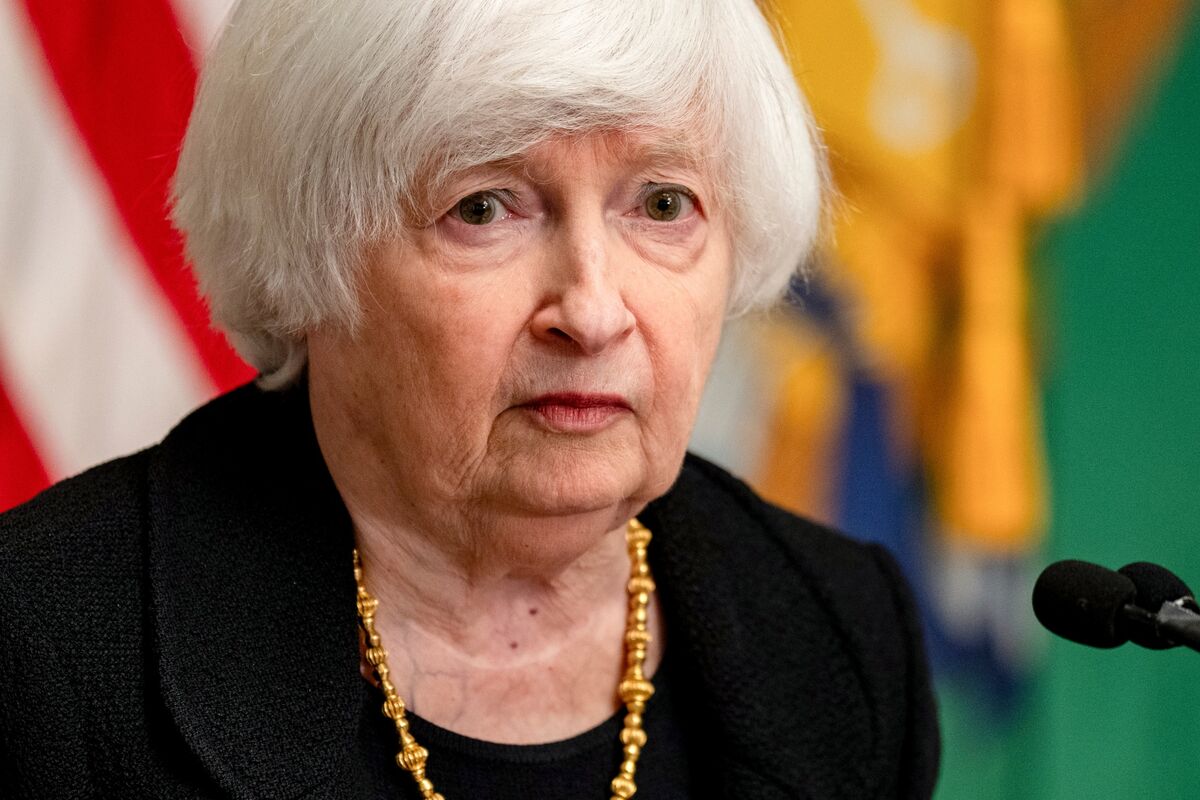Yellen: Trump's Tariffs Were a Mistake – A Costly Economic Experiment
Treasury Secretary Janet Yellen has unequivocally declared that the tariffs imposed by the Trump administration were a significant economic blunder. Her recent comments, made during a press conference and subsequent interviews, reiterate concerns held by many economists about the damaging effects of protectionist trade policies. This isn't just a retrospective analysis; Yellen's statement carries significant weight, influencing current economic policy debates and offering valuable lessons for future trade negotiations.
The Economic Fallout of Trump's Tariffs
Yellen's assessment isn't simply a partisan critique. She cites concrete economic data to support her claim, highlighting the detrimental impact on American consumers and businesses. The tariffs, primarily targeting goods from China, led to:
- Increased prices for consumers: Higher import costs were passed onto consumers, leading to inflation and a reduction in purchasing power. This disproportionately affected lower-income households who spend a larger percentage of their income on imported goods.
- Reduced competitiveness for US businesses: American companies reliant on imported materials faced higher production costs, making them less competitive in both domestic and international markets.
- Retaliatory tariffs from other countries: The Trump administration's tariffs triggered retaliatory measures from trading partners, harming US exports and further disrupting global supply chains.
- Minimal impact on trade deficits: Contrary to the administration's claims, the tariffs ultimately did little to reduce the US trade deficit, demonstrating the limitations of protectionist measures in addressing complex economic issues.
These consequences, backed by numerous economic studies, paint a clear picture of the negative economic effects of the Trump-era tariffs. Experts across the political spectrum largely agree that the benefits, if any, were significantly outweighed by the costs.
Beyond the Numbers: A Broader Perspective
Yellen's statement goes beyond a simple economic analysis. It represents a broader shift towards a more multilateral and collaborative approach to international trade. The Trump administration's "America First" approach, characterized by unilateral trade actions, is now being replaced by a focus on strengthening international alliances and working with partners to address global economic challenges. This shift is seen as crucial for fostering sustainable economic growth and ensuring a more stable global trading system.
Lessons Learned and Future Implications
The condemnation of Trump's tariffs by Yellen serves as a crucial lesson for policymakers. It underscores the importance of considering the broader economic consequences of protectionist measures and the need for a nuanced approach to international trade. Future trade policies should prioritize collaboration, transparency, and a deep understanding of the interconnected nature of the global economy.
The Path Forward: Towards a More Balanced Trade Policy
Yellen's comments suggest a renewed commitment to evidence-based policymaking in the realm of international trade. The Biden administration appears determined to avoid the mistakes of the past, focusing on building stronger international partnerships and promoting free and fair trade. This shift in perspective signifies a potential return to a more balanced and sustainable approach to trade policy, one that prioritizes economic growth and stability over short-term gains from protectionism.
Call to Action: What are your thoughts on the impact of Trump's tariffs? Share your opinions in the comments below. Let's discuss the implications of this crucial policy reversal and the future of American trade relations.

